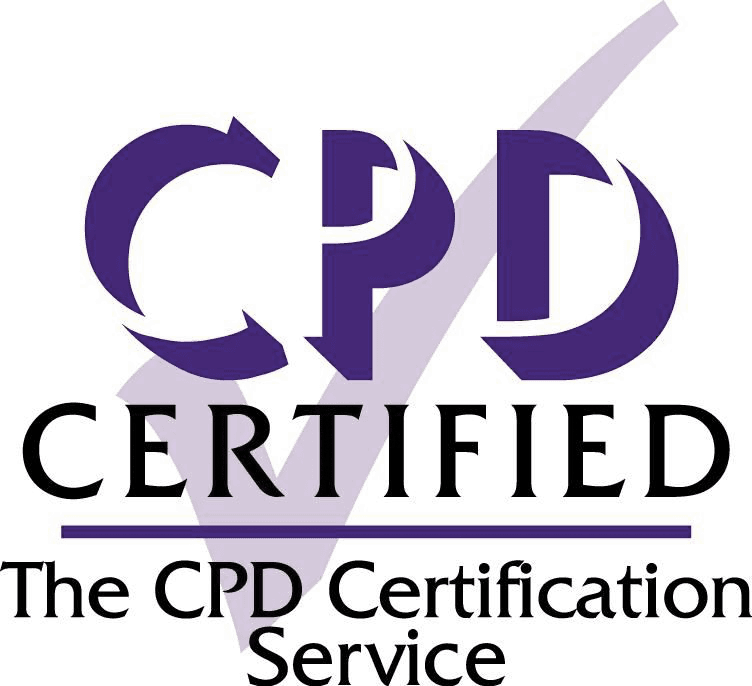
Data Analysis for Management
ONLINE CERTIFICATE COURSE
Gain the skills you need to analyse, interpret and communicate data with confidence, and make an impact within your organisation.
8 weeks, excluding 1 week orientation.
7–10 hours of self-paced learning, entirely online.
Email: lseonline@getsmarter.com
Call: +44 2038 568 850
ABOUT THIS COURSE
As the world becomes ever more data-driven, analytical skills are in high demand, but in very short supply. Organisations across the world are racing to gain a competitive edge by building their internal expertise to exploit quantitative techniques to their full potential.
Guided by LSE experts, this eight-week online certificate course provides you with the theoretical knowledge and practical skills to increase your ability to understand, interpret, and communicate data relevant to your role and organisation. During the course, you’ll develop an understanding of how data-driven models can inform managerial strategy and decision-making, learn how to extract business insights from data, and predict future trends.
The course emphasises a hands-on approach to learning data skills through its introduction to Tableau, an industry-leading business intelligence and analytics software. Using Tableau, you'll have the opportunity to apply the tools and techniques you learn, and discover how it can be used to produce insights and high-impact data visualisations.

This Data Analysis for Management online certificate course is certified by the United Kingdom CPD Certification Service, and may be applicable to individuals who are members of, or are associated with, UK-based professional bodies. The course has an estimated 70 hours of learning.
Note: should you wish to claim CPD activity, the onus is on you. The London School of Economics and Political Science (LSE) and GetSmarter accept no responsibility, and cannot be held responsible, for the claiming or validation of hours or points.
WHAT THIS COURSE COVERS
This Data Analysis for Management online certificate course equips you with the skills needed to make data-driven decisions, giving you and your organisation a competitive advantage in any industry. Throughout the course, you’ll learn to assess the reliability of data, extract strategic business insights, and use modelling to predict future trends. Guided by an LSE expert, you’ll develop data visualisation skills with which to clearly communicate your findings to all stakeholders and gain an understanding of how data-driven models can improve your ability to make business decisions. Over eight weeks, you’ll develop a working understanding of how to use Tableau to both gain and visually communicate insights from data. This course culminates in the completion of a capstone project, demonstrating your ability to leverage data for insights to inform business strategy. You’ll also get the opportunity to network with like-minded industry leaders and professionals, and grow your global business community, all while earning a certificate from LSE.
A POWERFUL COLLABORATION
The London School of Economics and Political Science is collaborating with online education provider GetSmarter to create a new class of learning experience – one that is high-touch, intimate, and personalised for the working professional.
ABOUT LSE
The London School of Economics and Political Science (LSE) is a leading dedicated social science university. LSE was founded in 1895 with the aim of understanding the causes of things for the “betterment of society”. LSE seeks to make research and teaching practical and relevant to the real world. The School counts 18 Nobel Prize winners and 37 world leaders amongst its alumni and staff. LSE has students from over 160 countries, and over 100 languages are spoken on campus.

ABOUT LSE ONLINE CERTIFICATES
LSE is dedicated to addressing global issues through research and education, and is the most international of all British universities. By offering online certificate courses designed by expert LSE faculty members, the School aims to make its state-of-the-art social sciences research and insights available to a wider global audience. The supported, interactive online learning model allows participants to study from anywhere in the world, at times of their convenience, while still interacting with peers and teaching staff alike.

ABOUT GETSMARTER
GetSmarter, part of edX, partners with the world’s leading universities and institutions to select, design and deliver premium online short courses with a data-driven focus on learning gain.
Technology meets academic rigour in GetSmarter’s people-mediated model, which enables lifelong learners across the globe to obtain industry-relevant skills that are certified by the world’s most reputable academic institutions.
As a participant, you will also gain unlimited access to edX’s Career Engagement Network at no extra cost. This platform will provide you with valuable career resources and events to support your professional journey. You can look forward to benefits including rich content, career templates, webinars, workshops, career fairs, networking events, panel discussions, and exclusive recruitment opportunities to connect you with potential employers.
WHAT YOU’LL LEARN
You’ll be welcomed to the course and begin connecting with fellow participants, while exploring the navigation and tools of your Online Campus. Be alerted to key milestones in the learning path, and review how your results will be calculated and distributed.
You’ll be required to complete your participant profile, confirm your email address for the delivery of your digital certificate, and submit a digital copy of your passport/identity document.
Please note that module titles and their contents are subject to change during course development.
Outline the challenges of decision-making under uncertainty, using business case examples.
- Recall some common dilemmas managers encounter
- Highlight how data-driven models can impact managerial decision-making
- Discuss managerial decision-making through the use of cross-sector illustrative applications
- Identify problems with uncertain outcomes that require the use of data-driven models and the quantification of uncertainty
- Identify the requirements of the project to be completed at the end of the course
Harness data visualisation to bring data to life, and employ descriptive statistics to summarise important data points.
- Define common principles of data reduction
- Calculate components of data reduction
- Recognise how Tableau is used in data visualisation
- Apply the essential functions of Tableau to summarise and illustrate a data set
Construct and use probability distributions for making decisions.
- Identify how to quantify probabilities
- Interpret simple probability distributions
- Determine updated probabilistic beliefs in light of new information
- Contrast the likelihood of different scenarios to inform decisions by quantifying the risk of particular outcomes
Appreciate the reliability and validity of data, and analyse estimation error.
- Recognise the value of considering the reliability and validity of data
- Discuss the impact of unreliable and invalid data on business decisions
- Calculate and interpret estimation error
- Estimate population characteristics while considering sample size
Test theories or claims through statistical significance.
- Recognise the consequences of type I and type II errors
- Identify the binary nature of decisions in hypothesis testing
- Discuss statistical proof and the inferences drawn from a statistical test
- Outline the impact of effect size and sample size on statistical significance
- Calculate the statistical significance of a test
- Analyse the calculated statistical significance of a test to draw conclusions
Model causality using regression analysis to explain the variation in dependent variables of interest.
- Recognise the fundamentals of regression analysis
- Discuss the complexity of linearity and its suitability to analysing data
- Identify some of the challenges and assumptions associated with regression analysis
- Execute a regression analysis
- Analyse the results from a regression analysis to conclude what drives the variation in variables
Challenges and uses of producing forecasts of the future.
- Identify the purpose and application of time series forecasting
- Distinguish the time series components of trends, seasonality, cycles, and black swans
- Predict future time series
- Assess prediction performance
Consolidate course topics through a capstone project.
- Identify the dos and don'ts of presenting and reporting key insights extracted from data
- Apply presentation and reporting techniques
- Investigate the key insights of a given data set
- Produce a presentation communicating key insights extracted from data
- Develop a summary report communicating key insights extracted from data
- Identify opportunities available to improve quantitative skills
- Recognise what you have achieved during this course
WHO SHOULD TAKE THIS COURSE
This course is designed for anyone interested in enhancing their qualitative skills and awareness related to corporate decision-making. Professionals from a variety of different sectors – including marketing, financial services, project management, and information technology – will benefit from this course if they’re seeking the ability to independently identify insights from data. Participants will learn to communicate data-based insights within their organisation in a way that brings the data and findings to life. The course will also enable managers to enhance their ability to critically assess and evaluate data and insights presented to them by others.
This course will also benefit those wanting to learn to analyse and interpret data using Tableau, the data visualisation and business intelligence software used as an industry standard worldwide. Participants will be provided with a student licence to download and use Tableau free of charge for the duration of the course.
There are no formal prerequisites for this course, but numerical and computer literacy is advantageous. Students will also need a basic working knowledge of Microsoft Excel.
THIS COURSE IS FOR YOU IF YOU WANT TO:
ADVANCE YOUR CAREER
Become more data-oriented and develop the skills to analyse, interpret, and communicate data effectively.
IMPROVE YOUR BUSINESS
Make smart and informed decisions, and be able to communicate these with confidence, impact, and credibility.
LEVERAGE INSIGHTS
Learn data analysis techniques that can be used to gain invaluable insights, inform business strategy, and predict future trends.
VALIDATE YOUR SKILLS
Earn a certificate from LSE, formally validating your knowledge of data analysis for business management.
ABOUT THE CERTIFICATE
Get recognised for your knowledge when you earn an official certificate of competence from the London School of Economics and Political Science – a world-leading social science university – and use it to validate your new-found data analysis knowledge and skills.
Assessment is continuous and based on a series of practical assignments completed online. To be issued with a digital certificate, you’ll need to meet the requirements outlined in the course handbook. The handbook will be made available to you as soon as you begin the course.
Your digital certificate will be issued in your legal name and sent to you upon successful completion of the course, as per the stipulated requirements.
WHO YOU’LL LEARN FROM
This subject matter expert from LSE guides the course design and appears in a number of course videos, along with a variety of industry professionals.
YOUR COURSE CONVENOR
Dr James Abdey gained his PhD in statistics at LSE, and has taught at LSE since 2008. He teaches the Department of Statistics’ undergraduate courses in mathematical statistics and quantitative methods, as well as elective courses in market research. His research interests include market research techniques and forensic statistics – the interplay of statistics and the law. Dr Abdey has extensive experience developing learning resources for LSE’s distance learning and summer school programmes in economics, mathematics, and statistics, and regularly teaches in Central Asia, Eastern Europe, and the Far East. Outside of academia, he has also worked on various quantitative-based consultancy projects in areas including the art market, and the World Gold Council, and has given seminars at the UK parliament.
HOW YOU’LL LEARN
Every course is broken down into manageable, weekly modules, designed to accelerate your learning process through diverse learning activities:
- Work through your downloadable and online instructional material
- Interact with your peers and learning facilitators through weekly class-wide forums and reviewed small group discussions
- Enjoy a wide range of interactive content, including video lectures, infographics, live polls, and more
- Investigate rich, real-world case studies
- Apply what you learn each week to quizzes and ongoing project submissions, culminating in a capstone project demonstrating your enhanced ability to analyse, summarise, and report on insights extracted from data, for more effective business decision-making
YOUR SUCCESS TEAM
GetSmarter, with whom LSE is collaborating to deliver this online course, provides a personalised approach to online education that ensures you’re supported throughout your learning journey.
HEAD TUTOR
A subject expert who’ll guide you through content-related challenges.
SUCCESS ADVISOR
Your one-on-one support available during University hours (8am–5pm GMT) to resolve technical and administrative challenges.
GLOBAL SUCCESS TEAM
Available 24/7 to solve your tech-related and administrative queries and concerns.
TECHNICAL REQUIREMENTS
BASIC REQUIREMENTS
In order to complete this course, you’ll need a current email account and access to a computer and the internet, as well as a PDF Reader. You may need to view Microsoft PowerPoint presentations, and read and create documents in Microsoft Word or Excel.
BROWSER REQUIREMENTS
We recommend that you use Google Chrome as your internet browser when accessing the Online Campus. Although this is not a requirement, we have found that this browser performs best for ease of access to course material. This browser can be downloaded here.
ADDITIONAL REQUIREMENTS
Certain courses may require additional software and resources. These additional software and resource requirements will be communicated to you upon registration and/or at the beginning of the course. Please note that Google, Vimeo, and YouTube may be used in our course delivery, and if these services are blocked in your jurisdiction, you may have difficulty in accessing course content. Please check with an Enrolment Advisor before registering for this course if you have any concerns about this affecting your experience with the Online Campus.
